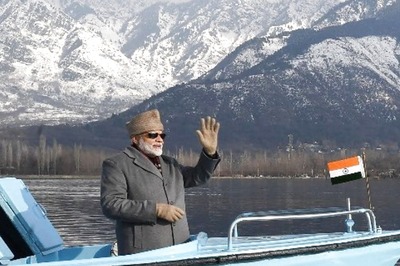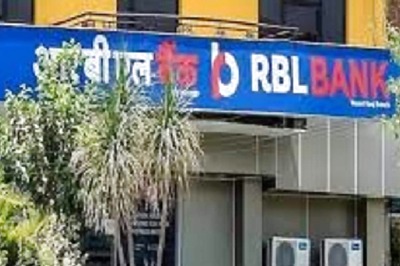
views
Sanaa: Yemeni protesters demanding President Ali Abdullah Saleh's removal vowed to step up street protests and said Saleh's inner circle could still frustrate a Gulf plan for him step down.
Saleh has ruled this impoverished Arabian Peninsula state for nearly 33 years and has agreed to a Gulf Arab initiative that would lead to him resigning within a month of an agreement being signed with the opposition.
The main opposition coalition conditionally endorsed the plan, but youths and activists that gave the anti-Saleh protests their momentum are skeptical.
They worry the ruling party and the opposition, which served in parliament before the protests, will sacrifice for political gain the wishes of tens of thousands in the streets demanding democratic reforms, and they do not trust Saleh's intentions.
"There's a lot of resentment among the youths because the opposition agreed to this initiative," Abdulhafez Muajeb, the leader of a protest movement in the Red Sea port of Hudaida, told Reuters.
"From our end, we will escalate our protests until we force the president to step down immediately."
In Sanaa, where protesters have camped out for weeks, many shouted, "No negotiation, no dialogue - resign or flee."
The opposition, led by Islamist and leftist parties, had been considered weak compared with the well-funded ruling party, but it has been able to draw large numbers to protests.
Scores of demonstrators have been killed in months of unrest in Yemen inspired by uprisings across north Africa and the Middle East that toppled Tunisia and Egypt's veteran leaders.
Analysts say a 30-day time period from the signing of the agreement until Saleh's resignation - and it is not yet clear when that period starts - offers a window of opportunity for unrest that could derail the transition plan.
"Tribal leaders or the president's sons or other leaders could do anything, because by this agreement they will be the losers," Yemeni analyst Ali Saif Hassan said. "If there is no civil war, they will lose. But if there is a war, they could be winners because they would lead the fighting."
That would worry Washington and neighbouring top oil exporter Saudi Arabia, who fear a descent into chaos would leave room for Al Qaeda's ambitious Yemen-based wing to further entrench itself in a country that sits on a strategic sea lane where some 3 million barrels of oil pass daily.
Saleh on Sunday told the BBC that Al Qaeda was active among the protesters. He has often argued that protests would serve Al Qaeda but the opposition, whose largest party is the Islamist Islah, says it is better placed to fight militancy.
Scepticism is also high among members of the opposition, which officially welcomed the plan drawn up by the 6-member Gulf Cooperation Council. The plan proposes Saleh organise a new cabinet led by an opposition member of his choice before he transfers powers to his vice-president within 30 days.
The opposition said it would not join the president's new cabinet. Members who asked not to be identified told Reuters the opposition was afraid of being linked to the cabinet in the event Saleh did not step down.
"There are concerns that we could share in the government and then the president would not stick to his promise to resign after 30 days. The man is well known for not sticking to his agreements," one opposition leader said.
Saleh has twice reneged on promises not to run for re-election in past years. Officials on both sides said they had been extremely close to a power transfer deal last month before it fell apart, possibly over concerns Saleh's family would not be granted immunity from prosecution.
"There is still one month until the president resigns and we expect him at any moment to change his mind," activist Mohammed Sharafi said. "We will not leave, until Saleh goes and we achieve our goals of setting up a modern, federal state."
Under the Gulf plan, Saleh, his family and aides would be granted immunity. The opposition has accepted this but may face an uphill battle to sell such a deal to street protesters, who say they want officials put on trial after the crackdown.
Protests in Yemen were also driven by frustration over rampant corruption in a country where some 40 percent of the country's 23 million people live on $2 a day or less and unemployment is high.




















Comments
0 comment